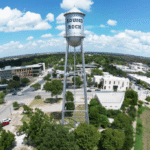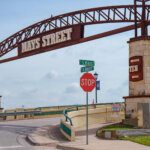The following column by Round Rock Mayor Craig Morgan ran in the Aug. 27, 2025 edition of the Round Rock Leader.
State lawmakers keep promising Texans that their legislation will lower property taxes. But year after year, homeowners open their bills and don’t see the relief they were told to expect. Now, instead of fixing the real problem — the broken way we fund schools — the Legislature is pushing SB 10 this special session, a bill that makes it harder for cities to make year-to-year adjustments for basic services.
Here’s what SB 10 does: it lowers the cap on how much revenue cities can raise from existing properties each year without triggering a special election. Right now, that cap is 3.5% for maintenance and operation expenditures. SB 10 would cut it down to 2.5%. That might not sound like a big change, but for a city like Round Rock, it’s the difference between being able to hire police officers and firefighters or not.
In the City of Round Rock’s General Fund — the budget that pays for day-to-day operations like police, fire, parks, the library and street maintenance — property taxes make up about 37% of revenues. Lowering the cap doesn’t touch special projects or utilities with their own funding streams. It goes straight to the operating dollars that keep the city running and neighborhoods safe. Nearly 70% of our general fund, which is the portion of our budget supported by property tax revenues, is tied directly to public safety and support services for fire and police. Push the cap lower, and you are forcing cities like ours to make incredibly difficult decisions about these essential services.

The City of Round Rock has already worked hard to find ways to lower property taxes, using what we call the “hardest working sales tax in Texas.” In addition to covering 41.5% of our general fund expenditures, one-half cent of our sales tax is dedicated directly to property tax relief, saving the median homeowner about $466 a year on their bill under our proposed tax rate.
Let’s get clear about where your property tax dollars actually go. Based on current proposed tax rates, a median Round Rock home valued at about $395,240, the portion of your tax bill that goes to the City for services is $1,470. The school district portion would be $3,530 — over twice as much as the City — with the rest going to the County, Austin Community College and the Upper Brushy Creek WCID. And here’s the kicker: a big share of those school taxes doesn’t even stay here. Because Round Rock ISD is considered “property-wealthy,” millions of local dollars are sent back to the state through the recapture system. When property values rise, the state reduces its contribution, leaving homeowners to shoulder more of the load. Until the Legislature addresses this broken school finance structure, Texans will keep feeling squeezed, no matter what new caps like SB 10 are passed.
Here in Round Rock, when voters approved bonds proposed by the City in 2023, they did so with full, upfront information. The impact was made clear in our communications to the public: an increase of about $0.069 on the tax rate, translating to roughly $36–$48 more per year for the average homeowner over five to seven years, based on a median home value of $369,000. Residents supported that plan overwhelmingly because they knew exactly what the investment would cost and what it would deliver — fire stations, Public Safety Training Center improvements and a historic investment in our parks and recreation system.
That’s the difference. When Round Rock raises revenue, it’s tied to specific, tangible projects or needs. But SB 10 doesn’t distinguish between investments like these and unchecked spending — it imposes a one-size-fits-all formula. That’s not relief. That’s the state making decisions for your community without understanding what it takes to keep it running.
Meanwhile, our proposed budget funds 17 new public safety officers, repaves neighborhood streets, builds two new fire stations, and delivers on voter-approved projects including trails, new downtown parks, renovations to Play for All, Clay Madsen Recreation Center and the Sports Center, and a massive investment in Old Settlers Park that includes expansions of Rock’N River, the Lakeview special events area, the Multipurpose Complex and a new Athletic Performance Center. The median homeowner’s share of these additions this year come out to $7.88 per month. Find anything else you can buy for that price that gives back as much.
Round Rock still has one of the lowest tax rates in the region and in Texas. But if SB 10 becomes law, you can expect major cuts to core services — police, fire and beyond. That’s not politics. That’s math.
So when you hear state leaders pounding their chests about “tax relief,” remember what SB 10 really means: shifting the burden and creating budget holes they’ll never have to fill. Property taxes are the tool the state has given cities to provide essential services, but if state legislators keep tightening the screws, it’s those very services — public safety, roads, parks and more — that will be on the chopping block.






